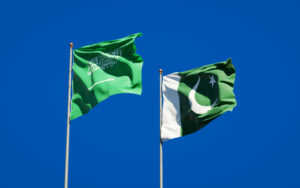On Monday, Syria shipped 600,000 barrels of heavy crude oil from the port of Tartus under an agreement with a trading company, a Syrian energy official reported to Reuters, marking the first acknowledged official export of Syrian oil in 14 years.
In 2010, Syria shipped out 380,000 barrels of oil daily (bpd), just before protests against Bashar al-Assad’s regime escalated into a war lasting nearly 14 years, which severely damaged the nation’s economy and infrastructure, including oil production.
Assad was overthrown in December of last year, and the Islamist-led administration that succeeded him vowed to rejuvenate Syria’s economy.
Riyad al-Joubasi, the assistant director for oil and gas at Syria’s energy ministry, informed Reuters that the heavy crude oil was sold to B Serve Energy.
B Serve is connected to BB Energy, an international oil trading company. BB Energy did not respond right away to a request for a comment.
Syria’s energy ministry reported in a written statement that the oil was shipped on the Nissos Christiana tanker.
Joubasi mentioned that it was obtained from multiple Syrian fields but did not specify which ones.
The majority of Syrian oil fields are situated in the northeast, within areas controlled by Kurdish-led officials. Those authorities started supplying oil to the central government in Damascus in February, but relations have worsened since then due to concerns about inclusivity and rights for minorities, such as Kurds.
Oilfields exchanged ownership numerous times throughout Syria’s conflict, while U.S. and European sanctions hindered both legal exports and imports. Sanctions persisted for many months following Assad’s removal, complicating energy imports for Syria’s new government.
Following U.S. President Donald Trump’s executive order in June to remove American sanctions on Syria, companies based in the U.S. started creating a comprehensive plan to assist in exploring and extracting oil and gas in Syria.
Syria has signed an $800 million memorandum of understanding with DP World to develop, manage, and operate a multi-purpose terminal at Tartus, following the cancellation of a contract with a Russian company that previously operated the port under Assad.





